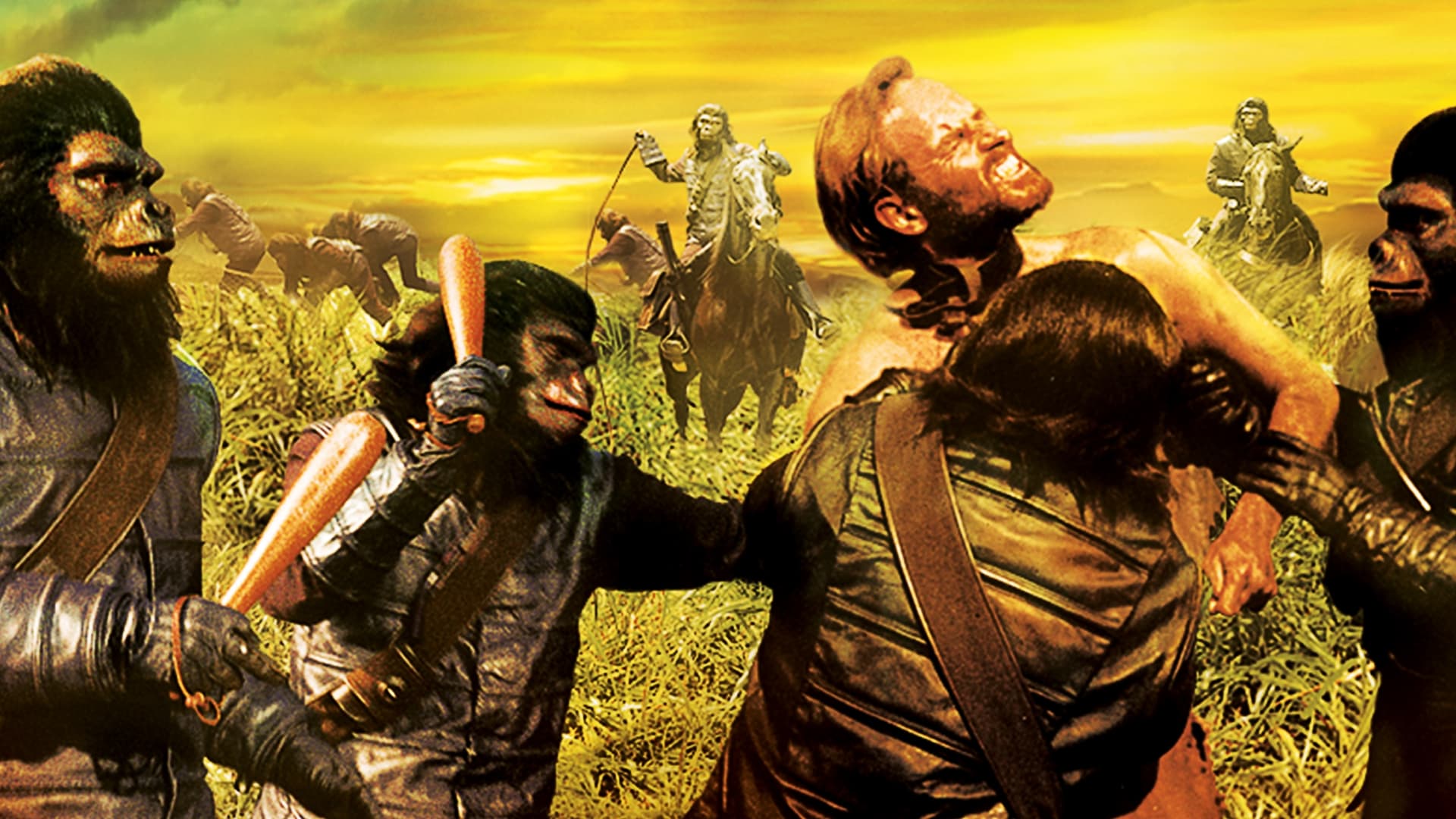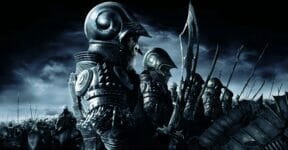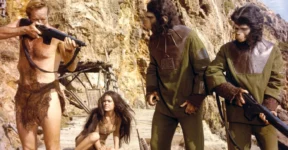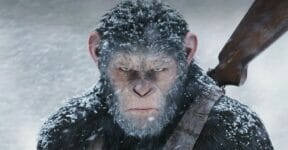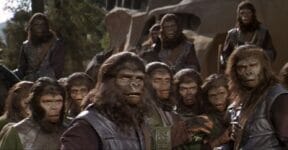According to Tim Burton, the director Planet of the Apes reimagining released in 2001, nobody should remake a classic, especially if the film is classic of its time. It is impossible to regain the same momentum, the social issues, the political movements, and all the external real-world elements that become part of the film and make it good. Also, no one can re-create Charlton Heston’s George Taylor. Check out everything you need to know about Planet of the Apes 1968!
Warning: if you haven’t seen the Planet of the Apes films, there will be spoilers ahead.
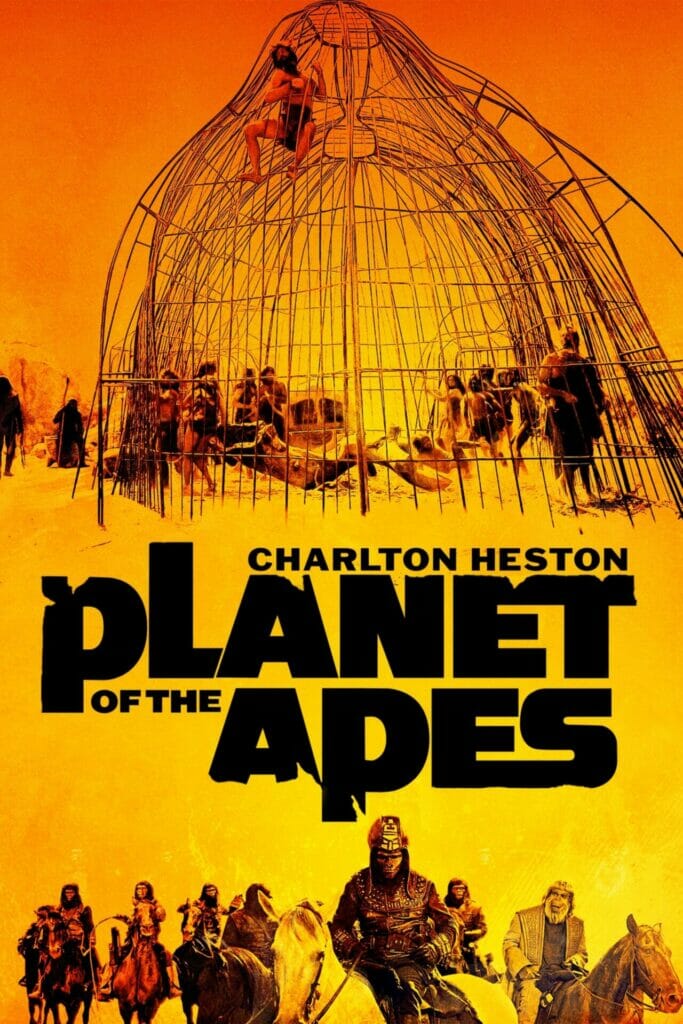
Burton is right. Franklin J. Schaffner’s Planet of the Apes 1968 classic is still largely considered the best of the franchise, even after four sequels, a remake, two TV series, and a complete reboot. The film is not the best of all time, but it shoots some very straight accurate arrows to the most pressing of the world’s affairs at the time of its release.
A Troubling Film for a Troubling Time
The premise is all too familiar with sci-fi fans worldwide. Representations of human civilization – in this case astronauts – go on an interstellar travel and crash-land on a strange world dominated by talking apes. There are other humans, but they are mute and regarded as second-class citizens, whose sole purpose of existence is to serve as slaves and medical research subjects. The astronauts are captured and imprisoned with other human captives. One of the surviving astronauts is lobotomized, leaving George Taylor on his own in the struggle to defend himself against the cruel apes. It soon turns into a brutal cat and mouse game after Taylor demonstrates an ability to speak. He finally makes an escape only to realize, upon seeing the Statue of Liberty in ruins, that the world is actually a future post-apocalyptic Earth devoid of intelligent humans.
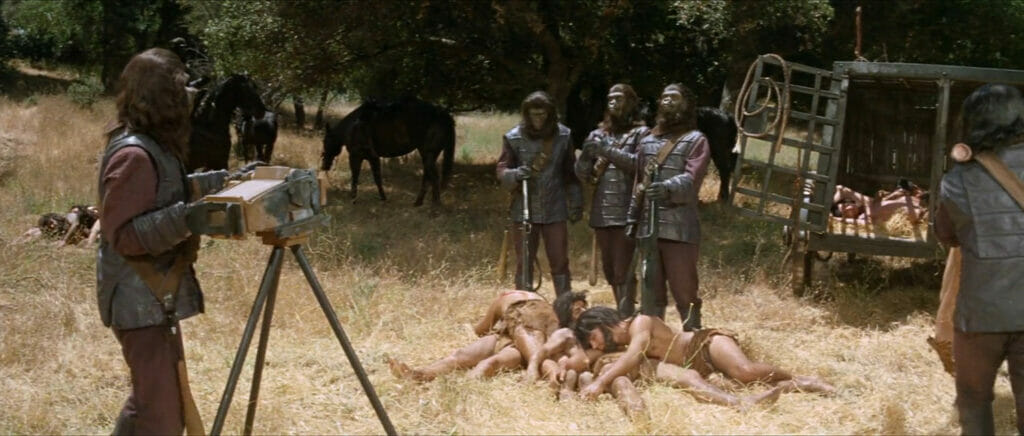
For more than 100 minutes running, the film makes quite a lot of references to the then-current political and social issues in the United States. The year is 1968; anti-war sentiments spread all across the nation with the escalating problems in Vietnam, especially with the Tet Offensive. There is a scene where a group of gorillas pose for victory photos after a session of human hunting, with the victims lying side by side dead on the ground. Some argue the film also makes an allegory for the My Lai Massacre (March 16, 1968), another atrocity committed by American soldiers against Vietnamese civilians. This is unlikely since the incident doesn’t become public knowledge until more than a year later.
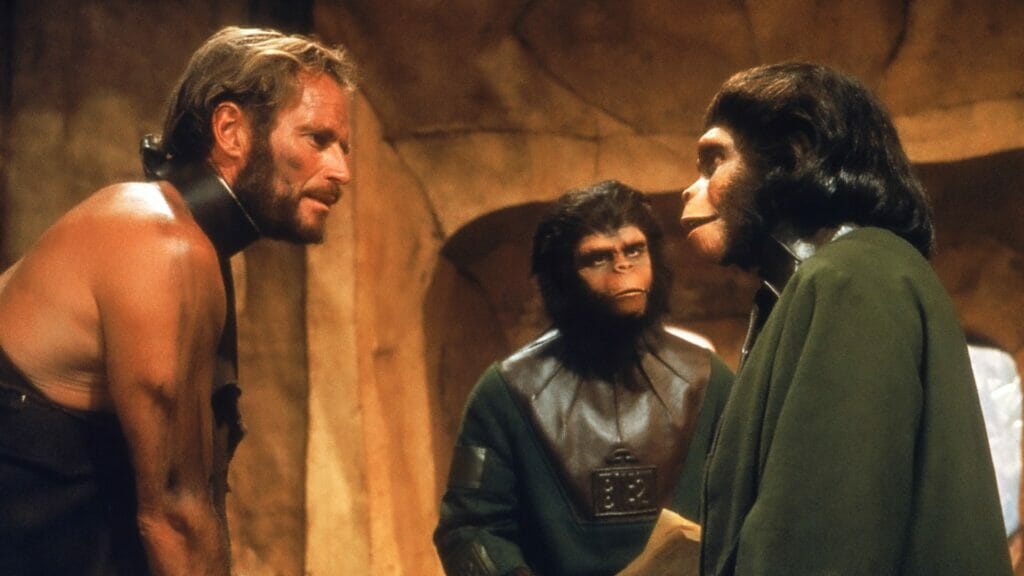
On the subject of racial conflict, Planet of the Apes doesn’t hold back in highlighting America’s resentful history of slavery. The assassination of Martin Luther King only makes the film more chillingly allegorical than it really is. The apes represent white people, while George Taylor is a black archetype covered in white skin. The moment Taylor is captured after the hunt, he is treated as nothing more than a cheaply acquired commodity, and the apes can do anything they see fit with him.
His fellow astronaut, named Landon, survives the ordeal only to be lobotomized and is now catatonic. Due to his rebellious manner and inclination to escape, some apes want Taylor punished by castration. Mimicking the harsh, perhaps inhumane treatments toward civil rights protesters in the early 1960s, the apes use water jets to subdue Taylor and force the rioters into silence. The behaviors of the apes in the film mirror the worst attitudes of white superiority in the United States.
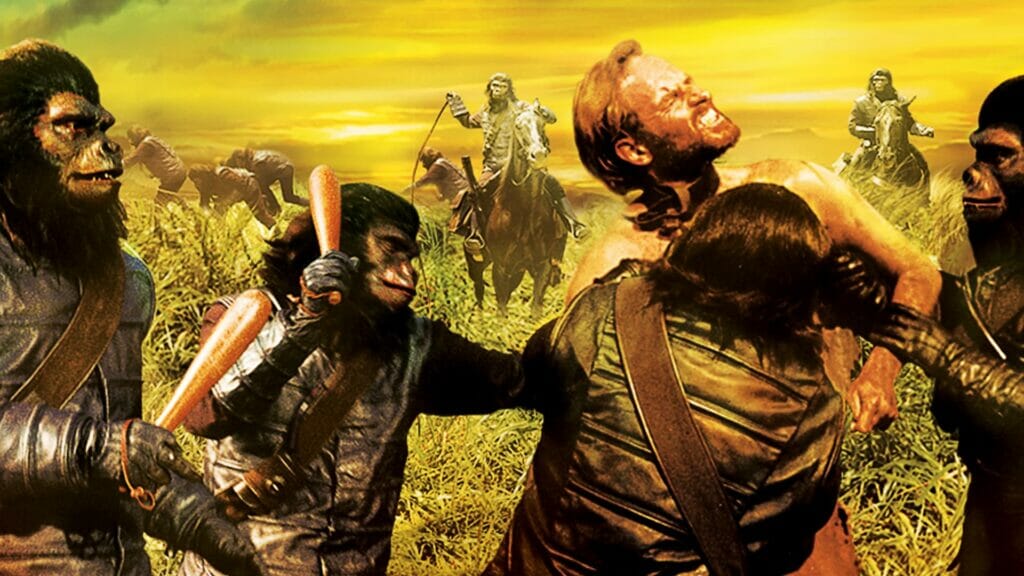
Taylor is an alien. A person who looks different than the ruling class. On that note, Planet of the Apes also raises broader questions over human identity, individual rights, and citizenship. There is even a reference to the Cold War with the threat of global-scale destruction with nuclear weapon. As the movie comes close to its ending, it issues a warning against the possibility of a dystopian society following the collapse of human societies. Part of the dystopian—as opposed to democratic—society is to follow orders and never question any decisions made by the authorities. A visual pantomime of “three wise monkeys,” for see-no evil, hear-no-evil, speak-no-evil is a brilliant take on the danger of ignoring wrongdoings in the society.
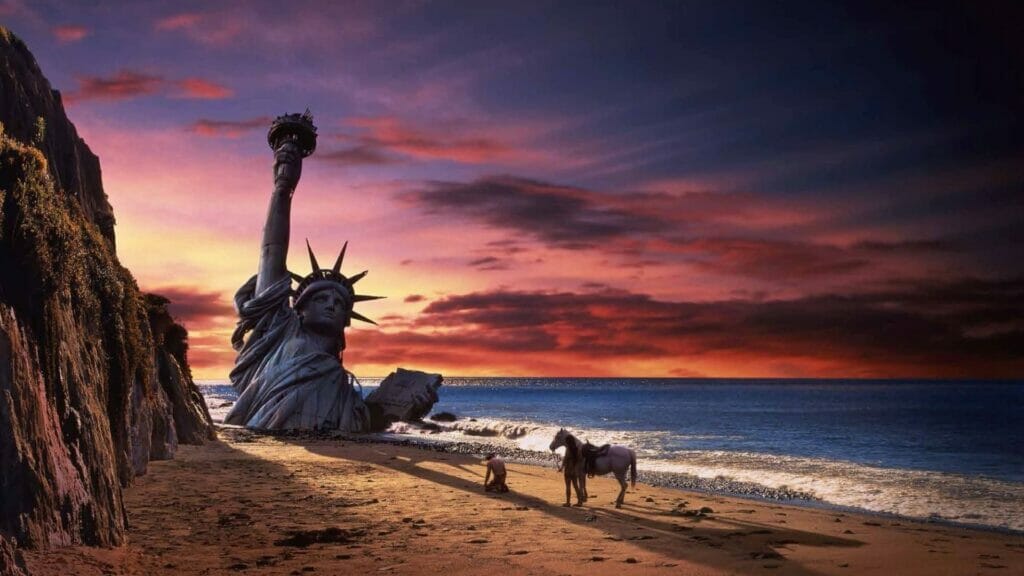
Finally, the Statue of Liberty, which has long been an enduring image of hope, appears in the film to symbolize a civilization buried under savagery and barbarism. Even George Taylor, initially depicted as an intelligent and independent man in a NASA flight suit, fall into anger and resorts to his primal instincts when dealing with so much oppression.
Box Office
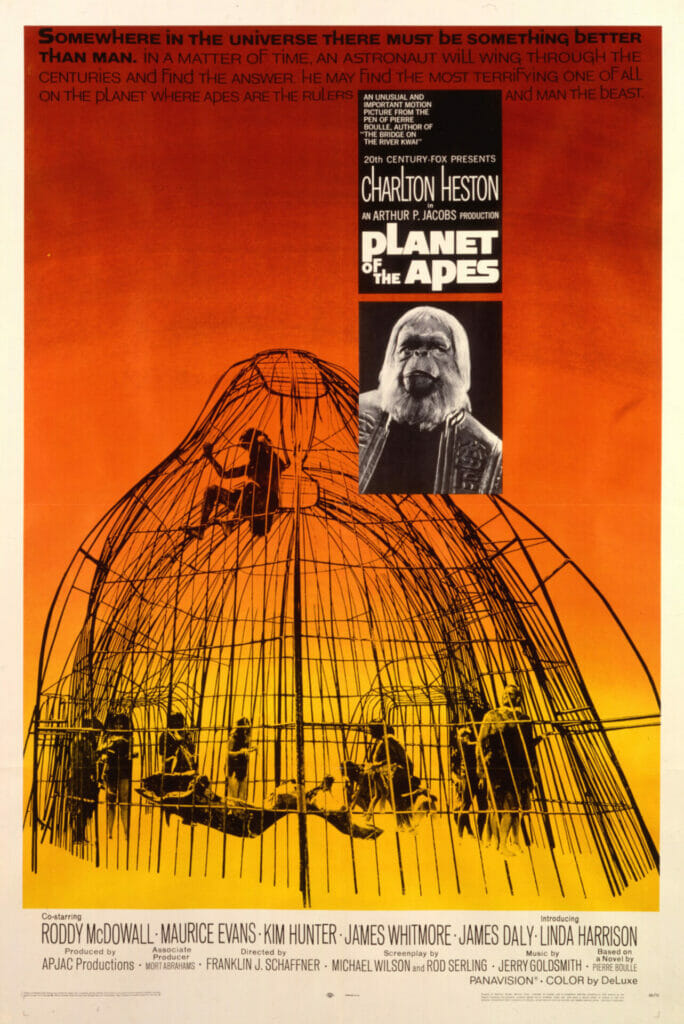
As for the box office revenue, Planet of the Apes 1968 is not the most successful film in the franchise. The credit goes the second film in the reboot series, Dawn of the Planet of the Apes (2014). Even the poorly-received remake has done better for 20th Century Fox financially.
| Release Date | Title | Production Budget | InflationAdjusted | Worldwide Box Office | InflationAdjusted | Profits |
| July 2014 | Dawn of the Planet of the Apes | $170,000,000 | $213,786,116 | $710,644,566 | $893,682,010 | $679,895,894 |
| July 2017 | War for the Planet of the Apes | $150,000,000 | $182,182,808 | $490,719,763 | $596,004,697 | $413,821,889 |
| August 2011 | Rise of the Planet of the Apes | $93,000,000 | $123,087,250 | $481,800,873 | $637,672,523 | $514,585,273 |
| July 2001 | Planet of the Apes | $100,000,000 | $168,198,305 | $362,211,740 | $609,234,007 | $441,035,702 |
| February 1968 | Planet of the Apes | $5,800,000 | $49,618,500 | $32,599,488 | $278,885,809 | $229,267,309 |
| May 1970 | Beneath the Planet of the Apes | $2,500,000 | $19,182,409 | $18,999,718 | $145,784,150 | $126,601,741 |
| May 1971 | Escape from the Planet of the Apes | $2,000,000 | 14,701,777 | $12,348,905 | $90,775,428 | $76,073,651 |
| June 1972 | Conquest of the Planet of the Apes | $1,700,000 | $12,107,863 | $9,043,472 | $64,410,073 | $52,302,210 |
| June 1973 | Battle for the Planet of the Apes | $1,700,000 | $12,107,863 | $8,844,595 | $59,304,802 | $47,196,939 |
| Totals | $526,700,000 | $794,972,891 | $2,127,213,120 | $3,375,753,499 | $2,580,780,608 |
Note: figures are estimate and adjusted for inflation
Planet of the Apes 1968 might not be the most commercially successful film in the franchise, but it still is the best feature of the bunch for the sheer number of brilliant ideas and clever allegorical messages. All sorts of real-world external elements make the original a perfectly-timed film. Critics and fans adore it, and forever it will be a classic reminder of how science fiction and film can resonate and amplify the sounds of a resistance during a challenging era.
Planet of the Apes may not have been the biggest money maker of the series, remake, reboot and TV shows, but because it was first and triggered the production of all the other sequels and spinoffs, we still see it as the most successful. Even knowing the ending, which shocked viewers back in the 1960s, we still enjoy the original 1968 movie the most.
How about you? Which Apes film/show is your favorite? Let us know. We’d love to hear from you.
Other things you might want to know about.
Best Planet of the Apes characters
According to medium.com here is a list of the best Planet of the Apes characters.
- Caesar (Andy Serkis)
- Zira (Kim Hunter)
- Caesar (Roddy McDowell)
- Cornelius (Roddy McDowell, David Watson)
- Armando (Ricardo Montalban)
- Dr. Zaius (Maurice Evans)
- Kona (Toby Kebbell)
- MacDonald (Hari Rhodes, Austin Stoker)
- George Taylor (Charlton Heston)
- Nova ( Amiah Miller)
- Dreyfus (Gary Oldman)
- Dr. Stephanie “Stevie” Branton (Natalie Trundy)
- Maurice (Karin Konoval)
- Dr. Otto Hasslein (Eric Braedon)
- Bad Ape (Steve Zahn)
- Dr. Lewis Dixon (Bradford Dillman)
- Blue Eyes (Nick Thurston, Max Lloyd-Jones)
- Virgil (Paul Williams)
- Governor Breck (Don Murray)
- Charles Rodman (John Lithgow)
Go to medium.com to read more about these characters.
Quotes from Planet of the Apes-ranked
According to 13thdimension.com posted by Dan Greenfield in 2019, here are the best quotes from the Planet of the Apes movies.
* Zira: What will he find out there, doctor?
Dr. Zaius: Destiny
- Dr. Zaius: The Forbidden Zone was once a paradise! Your breed made a desert of it years ago.
*Taylor: I can’t help thinking somewhere in the universe there has to be something better than man. Has to be.
*Taylor: Doctor, I’d like to kiss you goodbye.
Zira: All right, but you’re so ugly.
*Taylor: You got what you wanted Tiger. How does it taste?
*Taylor: The flags of discontent. Remember, never trust anybody over 30.
- Taylor: Oh, there were women. Lots of love-making but no love.
- Taylor: I feel lonely.
Go to 13thdimension.com for more quotes from Planet of the Apes.
Inspiring Quotes from Planet of the Apes
According to methodshop.com these quotes from Planet of the Apes show how family is everything.
- Malcolm: If you threaten his family, he will retaliate.
- Dreyfus: I’m saving the human race.
- Caesar: Apes alone…weak. Apes together…strong.
- George: There’s your Minister of Science; honor-bound to expand the frontiers of knowledge.
Dr. Zira: Taylor, please!
George: Except that he’s also Chief Defender of the Faith.
Dr. Zaius: There’s no contradiction between faith and science…true science.
George: Are you willing to put that statement to the test?
Cornelius: Taylor, I would much rather—
George: Take it easy, you saved me from this fanatic. Maybe I can return the favor.
*Caesar: Ape always seeks strongest branch.
Go to methodshop.com to read more details about these quotes.

